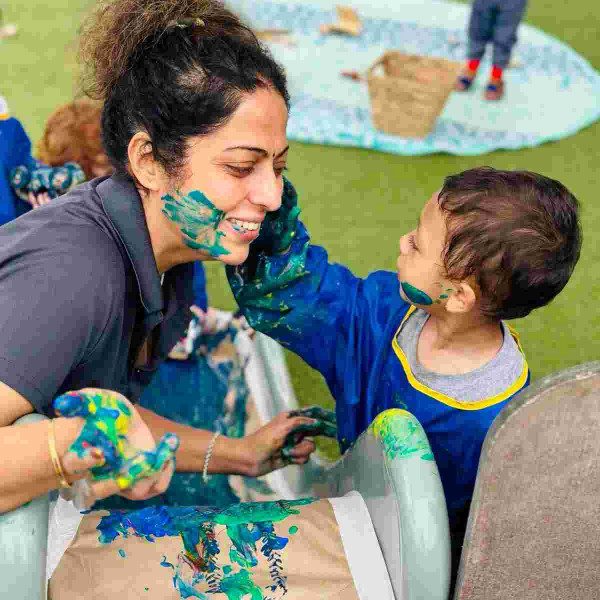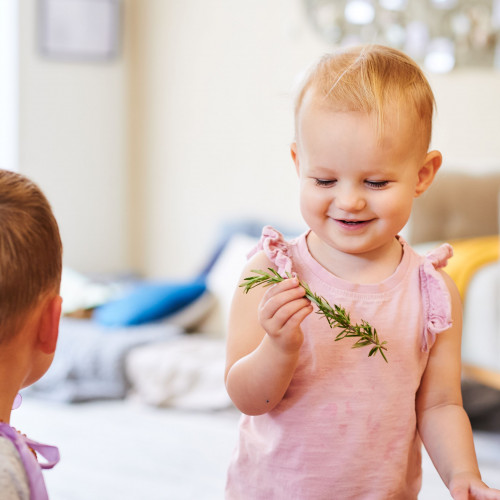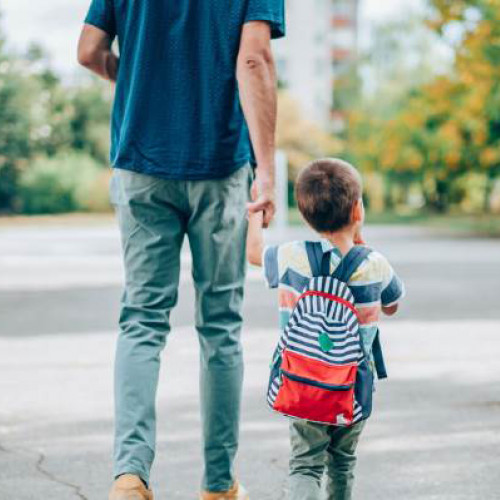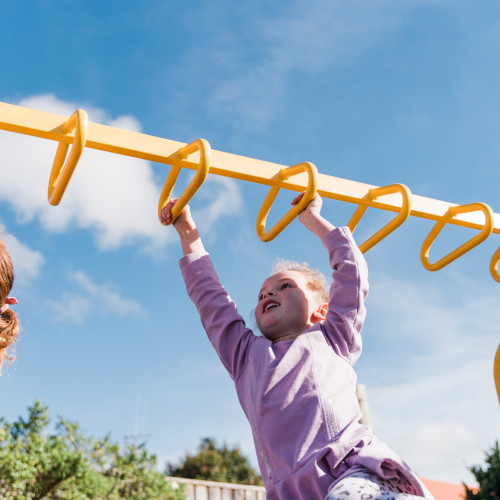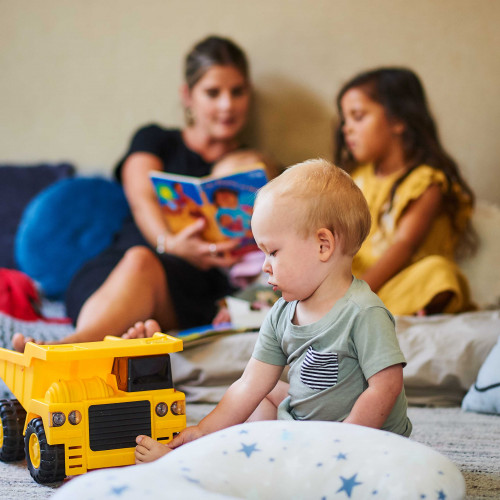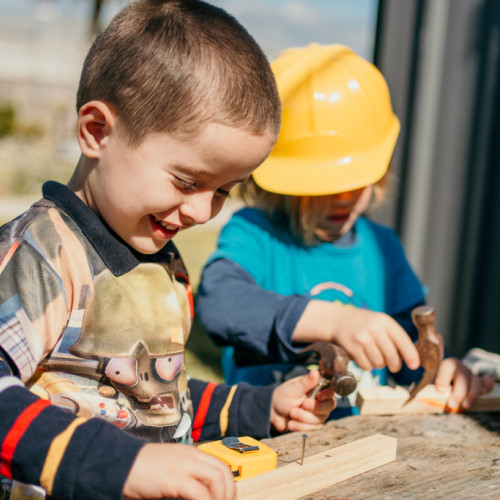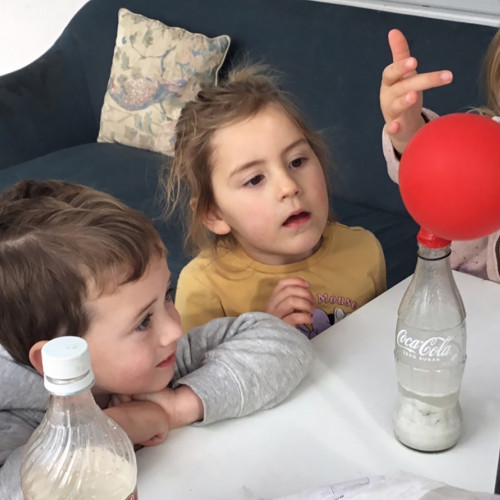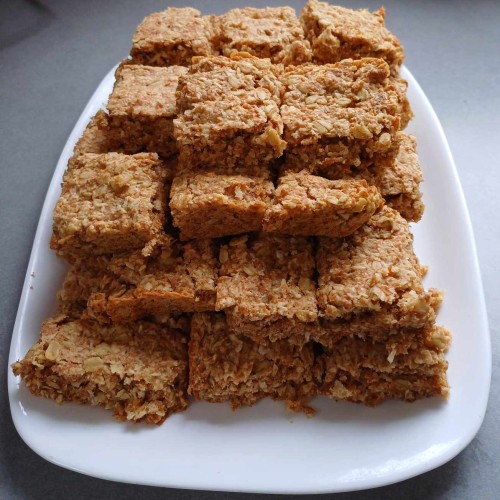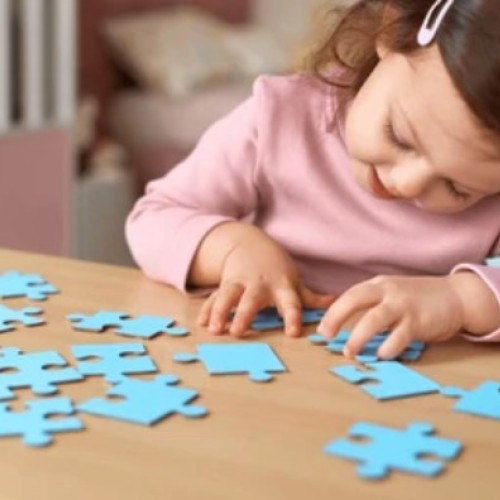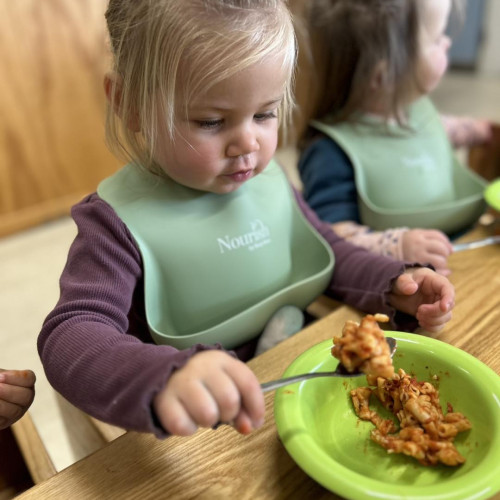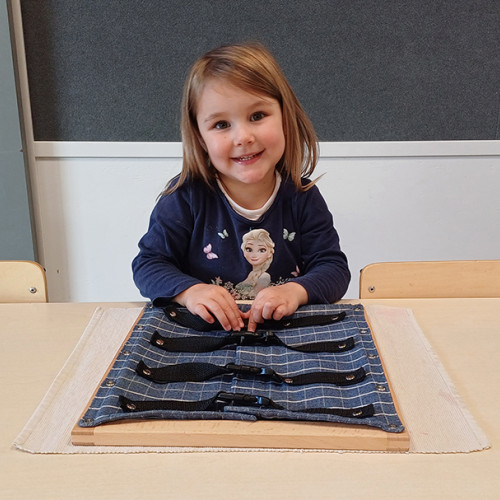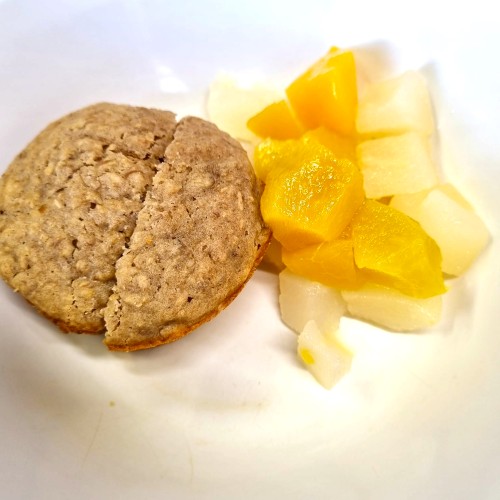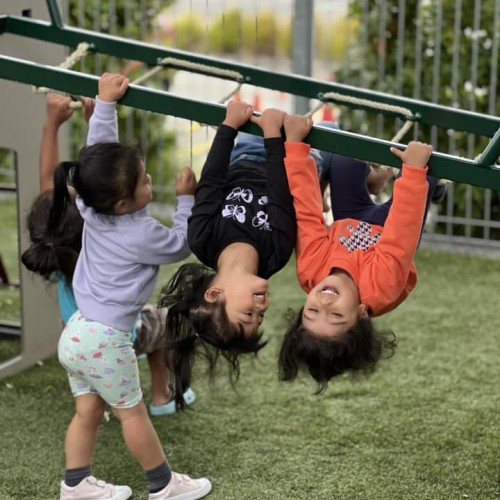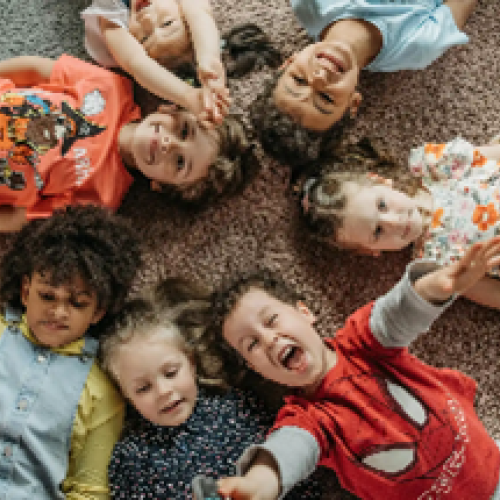
Hit enter to search or ESC to close
We all know that most children love to get messy. The squishier, gooier or slimier the better!
You'll be pleased to know that Busy Bees Early Education centres are well equipped to have messy and sensory play as part of our curriculum. All you need to do is pack a change of 'kindy clothes'!
Beyond the simple joy of being allowed to get as messy as they like with paint, water, sand, mud and so on, the benefits of sensory and messy play extends to children’s cognitive, physical, and social development. Here at Busy Bees Ruakākā , we encourage children to engage in messy play as much as possible!
Did you know that through engaging in these hands-on messy activities, your children learn and develop in so many ways? Here’s how;
- Messy play encourages creativity and imagination. There are few limits or boundaries on how children engage in messy play, they are free to explore and experiment with different raw materials, which can lead to new ideas and creative ways of thinking. These are vital skills for an ever changing world. For example, when children are exposed to open ended resources such as sand, water, paint or playdough, they can spend hours discovering and exploring resources or materials that stimulates their curiosity and develops their knowledge.
- Messy play introduces children to new textures through the sensory experience. Children learn about the senses through feeling, smelling and tasting, which fosters children’s awareness and understanding of the world. Or you can say… Young children, especially babies and toddlers explore their world through the senses. That’s why babies mouth everything. By setting up safe messy play experiences for children, they are encouraged to touch, feel, smell and taste a variety of textures that helps them make sense of the world.
- Messy play supports toddlers with fine motor skill development. Hands-on play has many physical advantages, helping children to be aware of their bodies and personal space. Manipulating messy materials like paint, clay, or sand requires children to use small muscles in the hands, fingers, and wrists, to make precise and controlled movements. These are important for developing the fine motor skills needed for writing.
- Hands-on play supports children to play independently. There is no right or wrong way for children to choose how they want to play with the materials/ resources. As children learn to control and manipulate messy materials, they also learn to take responsibility for their learning and play.
- It promotes young children's language development.
- Messy play allows children to have conversations with others by discovering a range of activities and describing sensations e.g., this feels so slimy, cold, soft, squishy! Children often describe their feelings during messy play, which enables them to develop their communication skills and emotions.
At Busy Bees Ruakākā , we always encourage our children to play outside, be exposed to the natural world and get creative with the mess. However if you'd like to share in some sensory play ideas with your children, here are some ideas to try at home:
- Play with water, floating, sinking, filling, pouring and splashing!
- Make slime or playdough to squish, squeeze, stretch, create and get those muscles in the hands working.
- Try making oobleck with a 3:2 cornflour to water mix - adults have just as much fun with this one!
At Busy Bees Ruakākā , messy play is an essential aspect of children's development, as it provides children with opportunities to learn, explore, and have fun while they develop new skills and learn about the world around them. Our environments are well set up to allow for messy play to happen and be cleaned away with ease!





